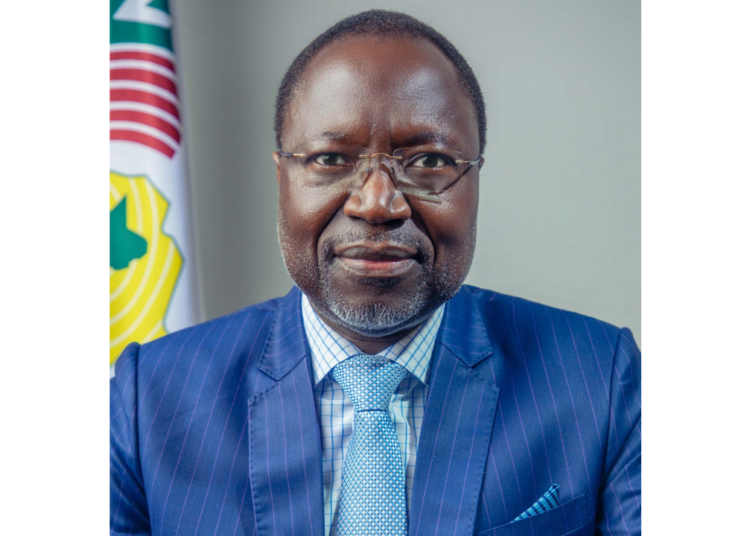Countries in the West African sub –region are at the risk of massive hunger and poor nutrition as about 42.5 million people may face food shortages and nutritional deficiencies if drastic measures are not taken to address the dire situation.
This threatening situation is attributed to the general insecurity in the region that has crippled food production and distorted the food value chain as a result of the displacement of many people.
President of the ECOWAS Commission, Dr Omar Alieu Touray, revealed this alarming figure while delivering his address on the Status of Implementation of the Community Work Programmes at the on-going First Ordinary Session of the ECOWAS Parliament in Abuja.
The most disturbing aspect of this threatening situation is that according to Touray, key actions in the areas of food security, education, voluntary return of migrants, and human security had been undertaken yet the situation remains dire.
Recall that ECOWAS, together with all its regional and international partners, had provided responses to food and nutrition insecurity in 2022 and the first quarter of 2023. This was done specifically in seven countries, namely Burkina Faso, Cape Verde, Mali, Niger, Nigeria, Senegal, and Chad.
According to Touray “In addition to the use of stocks from the Regional Food Security Reserve, nearly 1.1 million dollars, or 66 per cent of the total projected budget of 1.64 billion dollars of the response plans that were prepared by the member states in July 2022, has been mobilised.
“As a result, as of 30 March 2023, unfortunately, despite good production, about 29.5 million people needed emergency food and nutritional assistance.
“If appropriate measures are not taken, this figure could rise to 42.5 million people during the lean season between June and August 2023.
“In addition, 107.5 million people are estimated to be food insecure and could, therefore, fall into crisis in the event of shocks, notably in Nigeria (64 million), Niger (7.3 million) and Burkina Faso (5.1 million).
“The nutrition crisis also persists in Burkina Faso, Mali, Mauritania, Niger, and Chad, where nearly 16.5 million children under the age of five suffer from acute malnutrition.”
The situation in Nigeria which appears to face more imminent threat can be attributed to the prolonged violent conflicts perpetrated by the Boko Haram terrorists in the north east of the country and the rampaging bandits that have displaced farmers in the north west as well as the farmers-herders clashes that have left many dead and displaced many leading to massive losses in productivity in the agriculture sector.
West Africa has often suffered from scarcity of resources to finance the plans to ameliorate such severe conditions and there is the urgency of changing the paradigm in the management of food and nutrition issues by all actors.
The suggestion made by Touray that the solution to the food crisis is by implementing an intervention approach based on the “Humanitarian-Peace-Development” Nexus in the fragile zone appears very apt at the moment. However, the cost might again be too high.
To address this crisis, West African leaders need to invest more in conflict prevention and quick resolutions. According to an expert who does not want his name in print, “the conflicts in West Africa have distorted the productive chains and the devastating impact of the COVID-19 compounded the problem for the region. The leaders must re-strategize and refocus their priority on food production but above all they must provide security for the people.’’
Fighting terrorism has become the responsibility of the regional bloc and it will be pertinent if the region deploys the ECOWAS Standby Force to help nations fight against terrorism and unconstitutional changes of government. However, these options might be expensive and there could be logistic problems and operational difficulties.
Touray seems to have a better idea about this challenge as he said “On the regional action against terrorism, we have been advised by experts from the national security agencies to prioritise the deployment of assistance to existing regional arrangements.
” Among the arrangements are the Accra Initiative, the G5 Sahel, and the Multinational Joint Task Force, all within the framework of the ECOWAS Action Plan.
“The Concept of Operations for the deployment of ECOWAS Standby Forces to fight against terrorism and unconstitutional changes of government has two options.
“Option one provides for a Brigade of 5,000 personnel with its structure, composition, and the necessary logistics to conduct kinetic operations. Its estimated annual cost is USD2,253,862,306.00.
“Option two consists of the deployment of critical capabilities in support of affected member states upon request with an estimated annual cost of USD352,833,334.00. The overall estimated cost is USD2,606,695,640.
“This shows the cost involved in security and reminds us of the need to invest in conflict prevention.”
The president also said the commission was working with the national commissions on small arms in the region’s efforts to tackle the proliferation of small arms and light weapons.
There is hope that the Authority of Heads of State and Government, which gave a directive regarding enhancing the role of the ECOWAS Standby Force for deployment to fight terrorism and anti-constitutional changes in government will curb conflicts and unconstitutional changes in governments in the region.
It is now incumbent on the leaders of West Africa to find ways to stop terrorism, unconstitutional change of government, organised crime, armed rebellion and environmental crisis because these are the major drivers of food insecurity in the sub- region.





